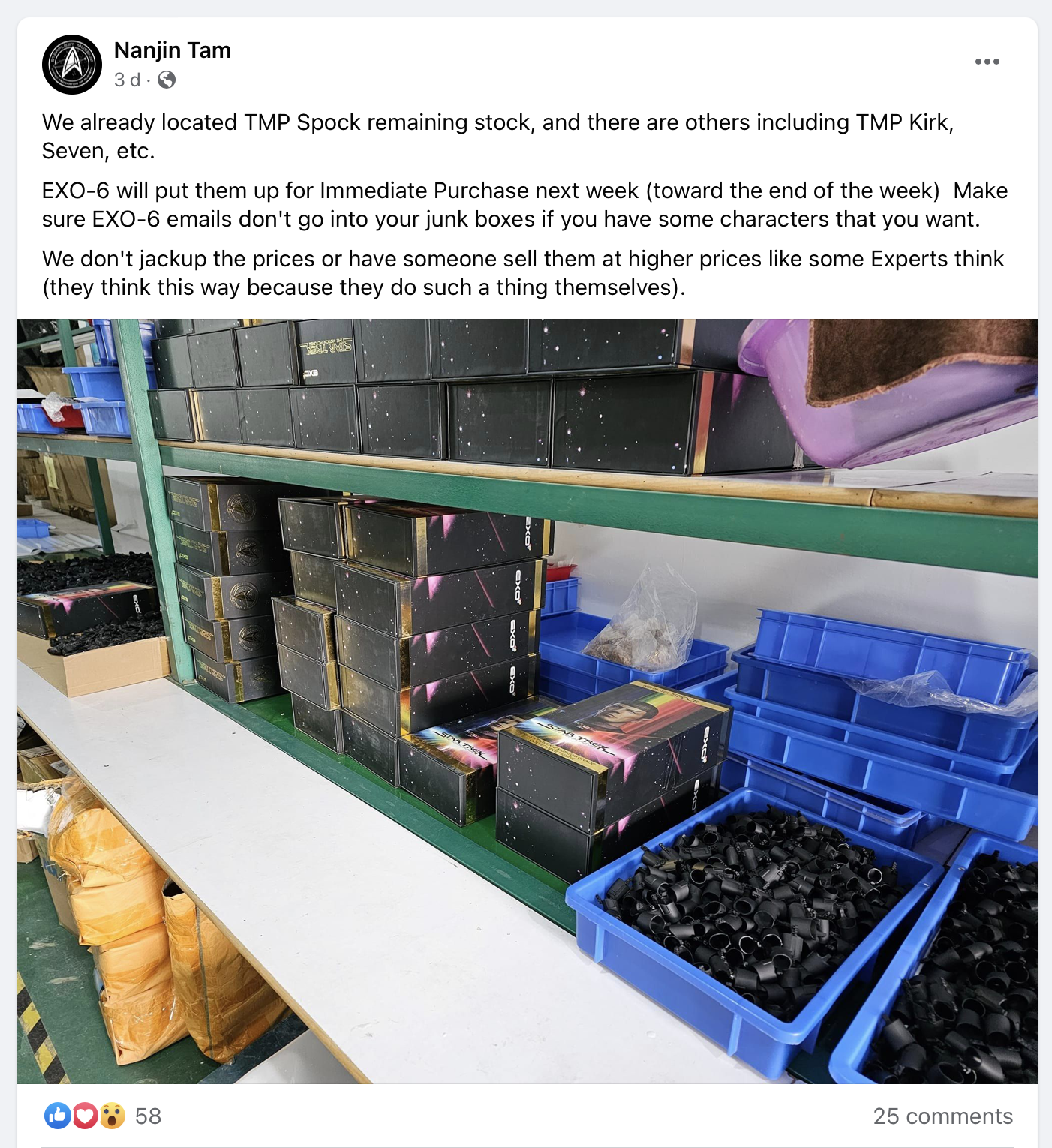The licensing stuff is all very complicated and inconsistent. It all depends on what the actor contractually agreed to with the studio regarding their likeness. In some cases they may secured some seriously tight and costly rights and in other cases they may not have had much power to negotiate anything at the time for the posterity of their benefit. If things are nebulous - for example the studio never offered up any clear licensing rights for high end 1:6 scale figures - then the studio has to draw up new agreements to cover an incidental request and consider all of the relevant parties, like actors, who might come out of the woodwork to have a say. It's not a simple or desirable clerical situation for studios to entertain some small toy maker's desire to produce niche products of a decades old property for a small collector market. "What, tell us again how you want to make 500 dolls of a character from a 44 year old film that we are no longer are in contract talks wth the actor for? Sure, we'll get our legal department on that tomorrow."
The actors also likely need a manager to negotiate these things. I doubt Collins has any manager now or any negotiating power in the industry. However, if the studio sells his likeness and profits from it he may have some leverage to sue within certain reasonable assumptions and using past precedents about how actors' likeness rights are sold. All very speculative and hypothetical.
In some cases a film may have expired rights and go into public domain after about 50 years and then anything can happen. That doesn't mean anyone can make merchandise, but the rights for various elements of the film can go up for purchase in an open market. That's how Peter Jackson privately secured the cinematic rights to Lord of the Rings. Universal Studios spent decades struggling with this sellng the rights to their horror film characters, like Dracula and Frankenstein, while ignoring the estates of the families who owned the actor likeness rights. Those families were constantly battling Universal until they finally firmed up their position and secured their own place for the rights and compensation of specific likenesses. Even today you see specifically licensed Universal or Lugosi/Karloff merchandise, but to have the accurate likeness it takes both licensors approval.
So how does that speak to the question of a Collins Decker figure? Well, despite who he is and what he has done, he has a right to his likeness being used. What degree of negotiating power he has is unclear, although likely little, but he still has the right that the studio will likely not want to get involved in. Easier to just deny any request than waste resources entertaining it. Easier for the manufacturer to just go full 3rd party on this and make their figure under the radar without labeling it as anything related to Star Trek, Decker or Collins. That's how they did it in the past, but it's a bad approach now that they have some relationship with the studio and proper licensing protocols established. I don't see the point in even trying just to appease a tiny niche of interested collectors. Better to go with a fantastic Ilya figure using a newly developed body and see how Khambatta's estate responds.













